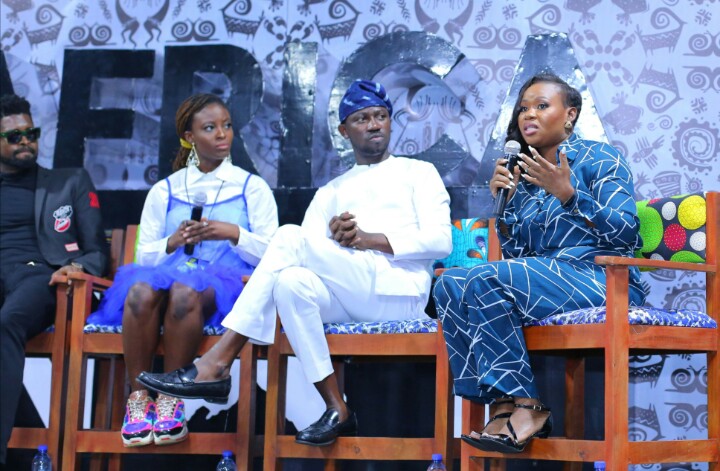Business
Inside Talks On Digitizing Indigenous Languages At 2022 Social Media Week
insights into the potential benefits

The Centre for Digitization of Indigenous Languages (CDIAL) on Wednesday, March 2, 2022, held a panel session at the 2022 social media week with the theme “Localizing Digital, Digitizing Local: making the case for Indigenous Language Policy.” The event, which took place at the NXT Tech stage innovation pavilion, had experts offering insights into the potential benefits of localized digital platforms to African citizens and businesses, from startups to large corporations, especially in the creative, healthcare, financial and agricultural sectors.
Speaking during the panel session, the founder of CDIAL, Yinka Iyinolakan, said that education is essential and having the right Indigenous language policy can help a significant proportion of the Nigerian population gain access to quality education even without them being able to speak the English Language. He stated that there was a need for Nigeria to own its languages and culture by embracing digitalization to aid the provision of infrastructure and get the right products and information into the right hands.
Furthermore, Mr Iyinolakan reiterated the importance of collaboration, stating that everybody has a role in ensuring that opportunities are expanded to people who don’t speak English.
“The government needs to be involved in the digitization of indigenous languages. It is important to note that policy reforms are a long process, but the people make up the government. They can, through effective collaboration, ensure that Indigenous language policy is instituted and implemented,” Mr Iyinolakan stated.
He also noted that the average Urban resident Nigerian speaks at least three languages, and for an indigenous language policy, all languages must be recognized through inclusiveness.
Furthermore, Mr Iyinolakan noted the importance of embracing digitization through the use of Machine language that can help solve education, financial, and security problems. “By encouraging localization through collaboration with the private sector, the government, and individuals, we can take the quantum leap into the future we desire for Africa. Together we can digitize our local languages and create an amazing impact in a way that will scale growth and development,” he stated.
He called on stakeholders to collaborate and partner with CDIAL to take Africa to a better place, noting that CDIAL is continually working on creating software and products to aid the digitalization of indigenous Nigerian and African languages.
The Brand Events and Sponsorships Manager, Stanbic IBTC Holdings, Mr Oyelakin Omolewu,said that his organization is making many social investments by going to the hinterlands to impact lives positively.
He revealed that Stanbic IBTC Holdings has a product line, including USSD codes, that create financial inclusion and some products target people in rural areas. He noted that making a case for language inclusion is pertinent, as it was essential to foster financial inclusion by getting across to the unbanked or semi-literates in languages they understand.
While contributing to the importance of preserving local languages, Artist and illustrator Ms Yadichinma Ukoha-Kalu said that it was essential to educate people about African languages, and she chose to do this by telling stories with fabric, textile designs, and arts in the digital space. She noted that there are no reference points to African smileys and faces in the digital space and that digitizing Indigenous languages can help foster the creation and inclusion of African-themed stickers and images in the digital space.
Furthermore, Ms Ukoha-kalu reiterated the importance of digital documentation and archiving for artistic practices, noting that Africans needed not to demonize their culture but recognize their history and keep its value by ensuring it remains in the digital space.



